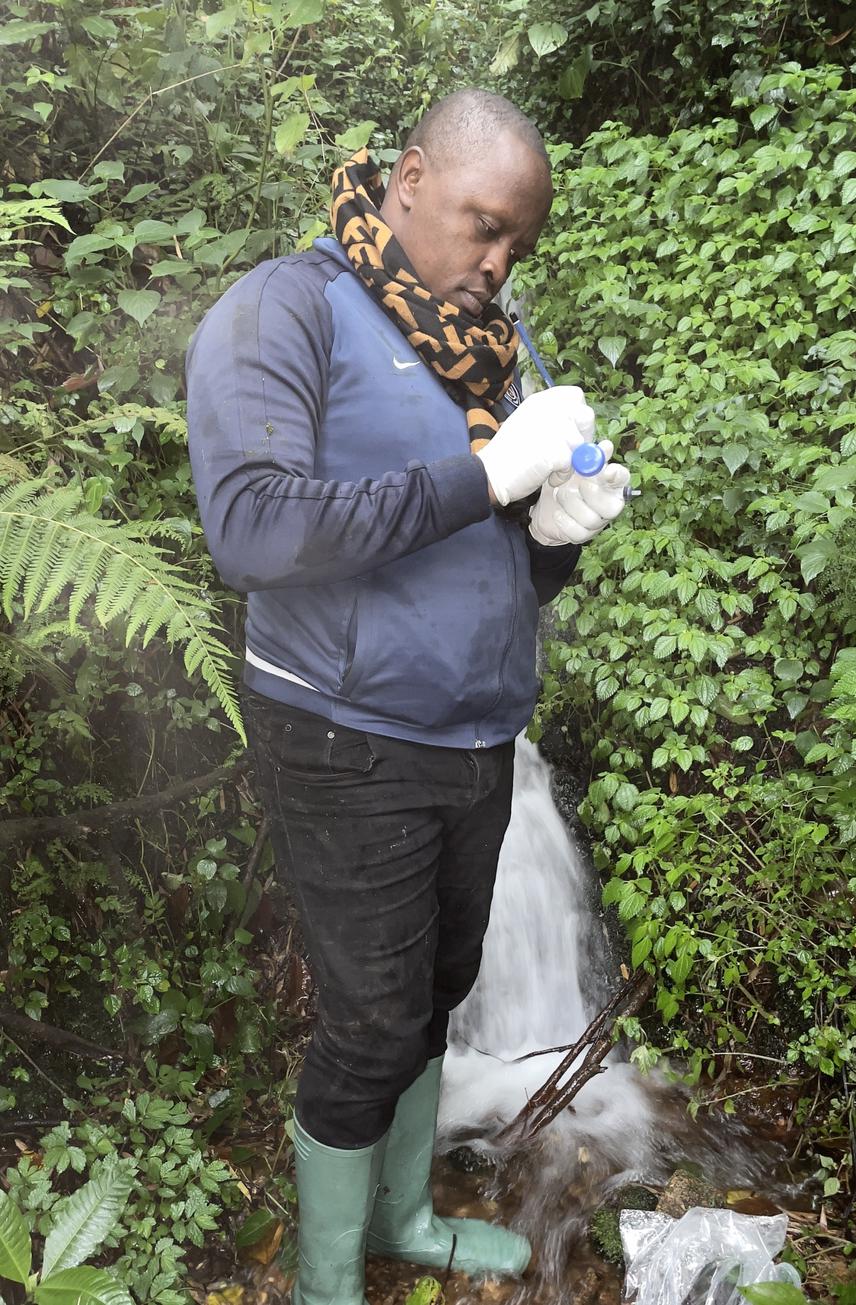Arnaud Marius Tchassem Fokoua
Other projects
12 Feb 2014
Influence of Anthropogenic Activities on the Distribution and Conservation Status of Amphibians of Bamenda Highlands
24 Mar 2016
Influence of Anthropogenic Activities on the Distribution and Conservation Status of Amphibians of Bamenda Highlands
16 Dec 2021
Intensifying Efforts to Rediscover and Save the Last Mountain Toads of Mount Bamboutos, Cameroon
Cameroon is one of the most diverse countries in terms of amphibians (IUCN 2017). The Bamenda Highlands (part of the northern highlands of Cameroon) which include Mount Bamboutos, is an area of exceptionally high amphibian diversity and endemism. The half (50%) of all the threatened amphibians known to occur on Mount Bamboutos is threatened with extinction (Bergl et al., 2007). Unfortunately, increasing pressures from surrounding communities seriously threatens the biological resources of the mountain. Recent surveys indicate that threatened species still exist in the area, but their habitats are fast disappearing (Tchassem et al., 2019).
Despite it being an Alliance for Zero Extinction site, none of the natural habitats on Mount Bamboutos are officially protected. The mountain range has a high human population density, which has caused extensive habitat loss in the past. All habitats have been reduced in size or disturbed through various forms of human activities (Sonchieu et al., 2019).

Tchassem Fokoua Arnaud Marius collecting ecological data on an important breeding site identified on Mount Bamboutos. © Taboue Tassé Geraud Canis.
This project aims to sustain the current population of threatened and endemic amphibian species through improving the quality of the species’ habitat and increasing awareness in the local communities. This will include restoring degraded gallery forest around streams where the species are known to have disappeared. Collaboration with community leaders will aim to ensure the long-term viability of conservation outcomes.
Specifically, it is planned to:
-1. To local participation in amphibian conservation through public speaking, engagement and discussions with the local leaders and communities surrounding Mt. Bamboutos.
At the end of the project, the stakeholders’ meetings and workshops will confirm that long-term sustainable conservation management plans and strategic plans for the legal protection status of Mt Bamboutos have been drafted.
-2. Restore the degraded habitats and breeding sites of at least five endemic amphibians of Mt. Bamboutos - Astylosternus ranoides Arthroleptis perreti, Cardioglossa oreas, Leptodactylon axilaris, Leptodactylon perreti.
At the end of the project, our habitat restoration program will confirm that the breeding sites and degraded habitats of our five focal species are restored.
-3. To engage in an outdoor science education program to educate and inspire young local students within communities.
At the end of the project, the outdoor science education program will confirm a minimum of 100 students (10 – 20 years old) in communities surrounding Mt Bamboutos are trained on the methods of studying and conserving the biodiversity of Mt Bamboutos, adopt conservation friendly behaviour, thus becoming 'Conservation Ambassadors' in Mt Bamboutos.